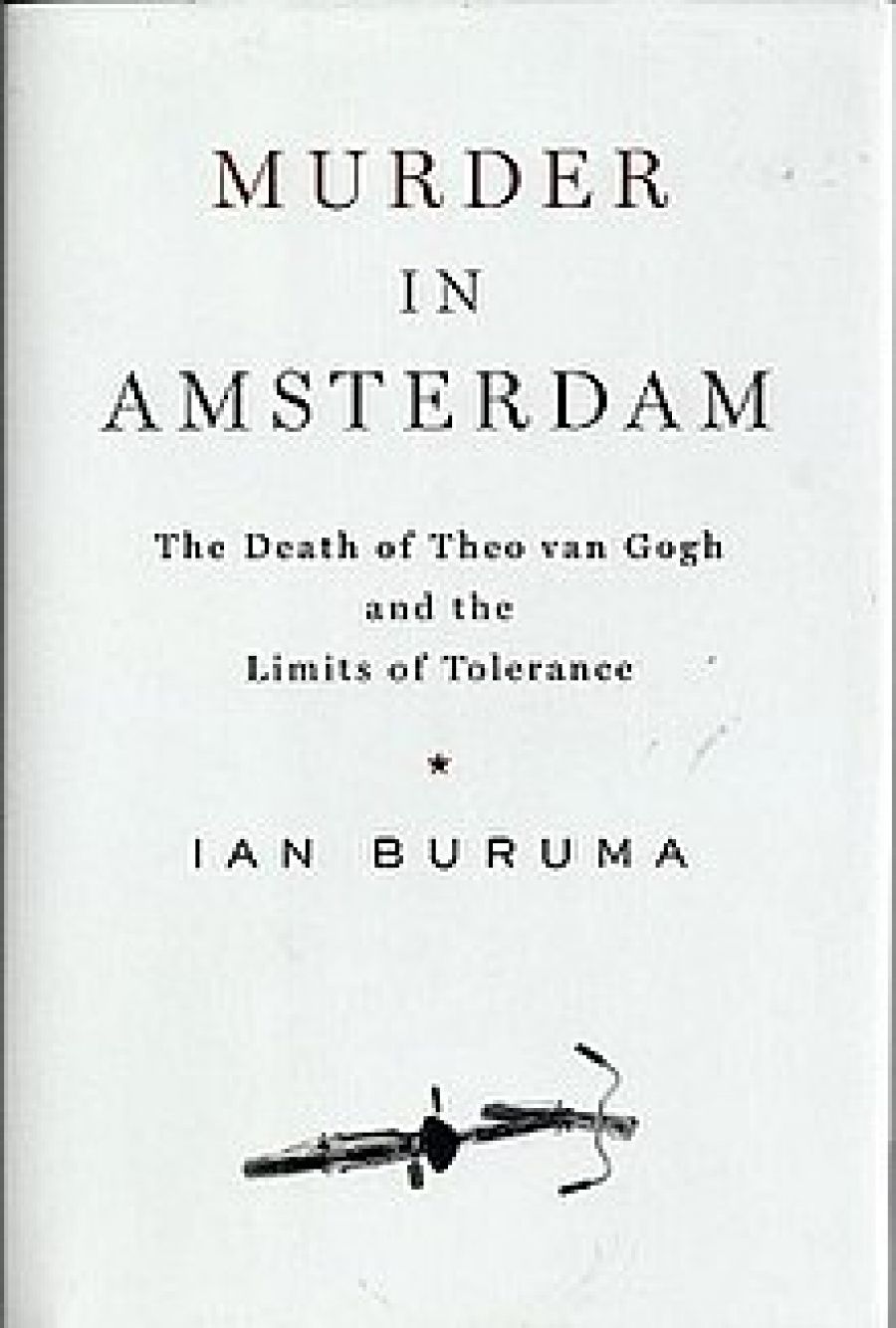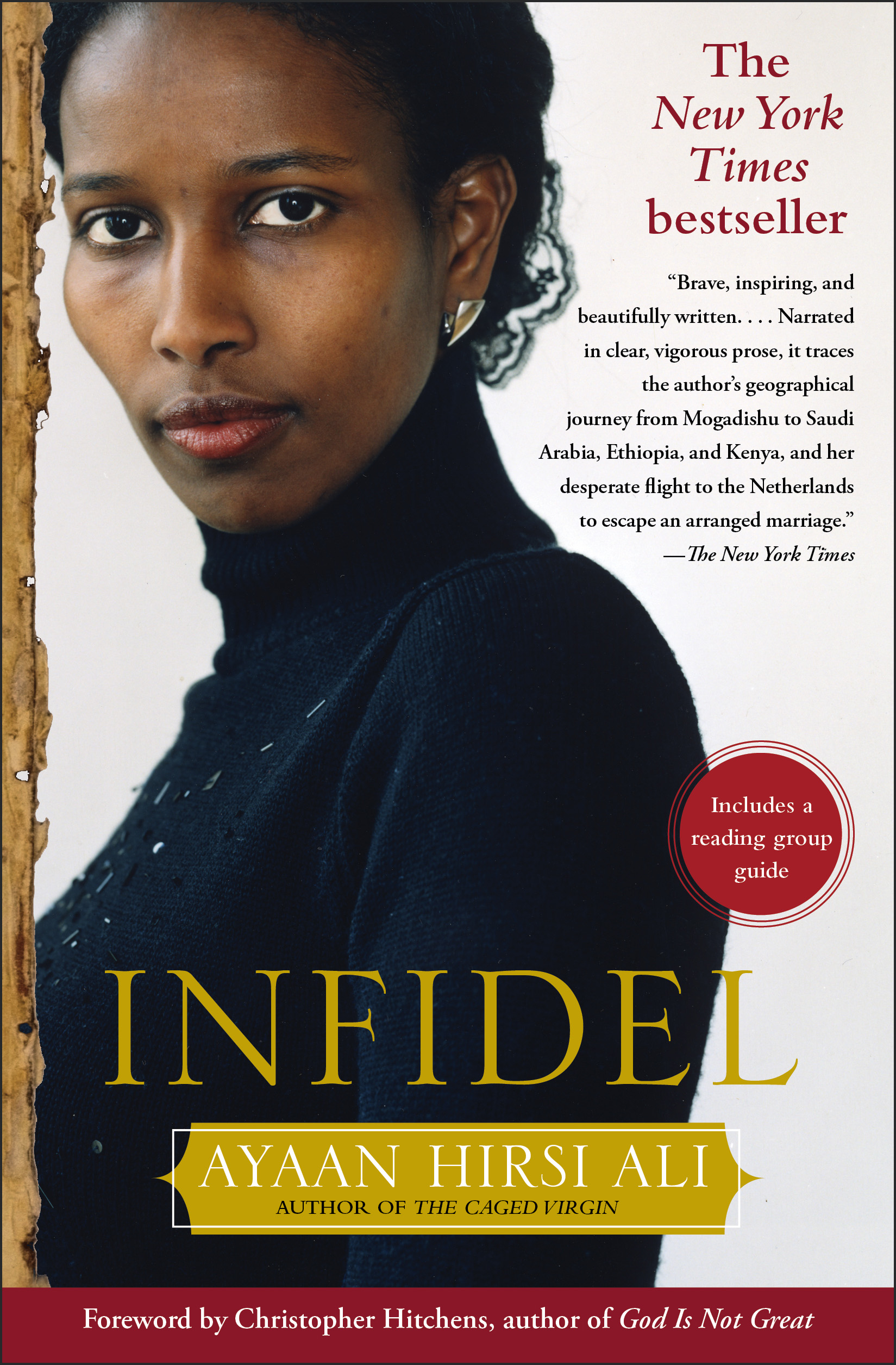
- Free Article: No
- Contents Category: Politics
- Review Article: Yes
- Article Title: The price of free speech
- Online Only: No
- Custom Highlight Text:
Theo van Gogh, born into a celebrated family, made himself famous, and infamous, in the Netherlands for his outrageous opinions, such as accusing the Jewish lord mayor of Amsterdam, the son of Holocaust survivors, of being a Nazi sympathiser. According to Ian Buruma, the author of Murder in Amsterdam: The Death of Theo van Gogh and the Limits of Tolerance (2004), when van Gogh made the controversial film Submission with the Muslim activist turned politician Ayaan Hirsi Ali, Buruma thought that this would be seen as another of his national ‘village idiot’ gestures. There was no intention to draw more than imaginary blood. Van Gogh had lived his whole life secure in the knowledge that in the Netherlands he was onze Theo (our Theo), and that what he was free to deride because of Article 23 also protected him. But to Muslim fundamentalists, freedom of speech is anathema. God, and his representatives, decide what is and can be said. In this mindscape, this very freedom of speech, as espoused in the Netherlands, proves that the country is an infidel state.
- Book 1 Title: Murder in Amsterdam
- Book 1 Subtitle: The death of Theo van Gogh and the limits of tolerance
- Book 1 Biblio: Atlantic Books, $24.95 pb, 278 pp
- Book 2 Title: Infidel
- Book 2 Biblio: Free Press, $34.95 pb, 365 pp
- Book 2 Cover Small (400 x 600):

Trying to make sense of the Netherlands in the wake of van Gogh’s murder in November 2004 by a Moroccan Islamist, Ian Buruma appears to stumble around his country in search of answers. But he never really falters. He uses himself as a walking metaphor, questioning how far Dutch Enlightenment values of tolerance can be stretched to accommodate the Muslim minority.
Buruma, a Dutch-born American academic, opens his examination of the Netherlands with Pim Fortuyn, the flamboyantly gay Catholic sociology professor from the northern Protestant city of Groningen, who established a political base in the southern city of Rotterdam. His party, Fortuyn’s List, nearly won the elections of 2002. Fortuyn and van Gogh were great friends. Buruma claims that some of Fortuyn’s best lines were written by van Gogh. Fortuyn gloried in shocking the Dutch burghers, particularly Calvinists, by describing his bathhouse antics and wearing furs. But he was deadly serious when he warned about the Muslim immigrants who, while enjoying the benefits of the Dutch welfare state, refused to accept the central tenets of democracy and free speech.
Like many Dutch, I admired Fortuyn for the sheer exuberance of his existence. To me, onze Theo and onze Pim personified the delicious contradictions of Dutch democracy. And, like most Nederlanders, I knew that when onze Pim said he was wearing mink stripped off the back of a living creature, his tongue was firmly lodged in his cheek.
One of us didn’t. Onze Pim was murdered on 6 May 2002 by an animal-rights activist. His was a white funeral, a Dutch tradition usually reserved for members of the royal family and for the higher echelons of the aristocracy. Buruma likens the outpouring of grief to the reaction five years earlier to the death of Diana, Princess of Wales. I suspect that Fortuyn would have enjoyed this analogy.
In the elections that followed, the Zeelander Jan Pieter Balkenende – from the same island (Walcheren) that I come from, and from the same radical Calvinist sect I was born into – was elected prime minister. His party, the Christian Democrats, was able to gain office by means of an unhappy coalition. The government fell within three months. In the next round of elections, in early 2003, Balkenende was returned. This time he formed a coalition with the VVD, a right-wing liberal party, whose chief, although he no longer sits in Parliament, is Frits Bolkestein, a lapsed Calvinist who grew up in Zeeland, on the island of Walcheren. For many years, both in the Netherlands and as a European Union commissioner, Bolkestein had warned about the growing Muslim problem.
Among the newly elected members of the VVD was a spectacularly beautiful Somalian woman, Ayaan Hirsi Ali, for whom Frits Bolkestein was a mentor. Hirsi Ali claimed that she was a refugee from a country that was tearing itself apart in a civil war. In her memoir, Infidel, Hirsi Ali admits lying about her name, date of birth and status as refugee in order to enter the Netherlands and to escape an arranged marriage. Within the tolerant system prepared to nurture her, Hirsi Ali learnt Dutch, worked in factories, women’s refuges, completed a master’s degree in political science from the University of Leiden, became a political candidate and discovered that she no longer wanted to worship a God who demanded total submission – all this by the time she was thirty. Hirsi Ali claims that she told the leaders of the VVD, particularly Frits Bolkestein, about her true status. She certainly told Buruma. ‘A bogus asylum seeker, then? “Yes,” said Ayaan, “a very bogus asylum seeker.”’
The early part of Hirsi Ali’s memoir – her descriptions of life in Mogadishu, Saudi Arabia, Ethiopia and Kenya – is vivid and evocative. The description of the genital mutilation she and her siblings endured when they were young is the part of the book most often quoted. This section has also raised the ire of moderate Muslims, who point out that excision is not part of Islam, rather a tribal custom.
Ironically, it was at the Muslim Girls’ Secondary School in Nairobi that Hirsi Ali learnt English and was introduced to Western popular culture, while at the same time adopting the hadjib of a devout Muslim woman.
Hirsi Ali admits to being a one-issue politician. Almost casually, she states that she wanted to abolish the part of Article 23 that guarantees the freedom to pursue a faith-based education. She argues that this would close down Muslim schools (‘Government funds would be better used setting up schools that are ideologically neutral and encourage kids to question and respect pluralism’), thus denying one part of the Constitution to force participation in another. In arguments such as these, Hirsi Ali presents herself as a Voltaire for Islam. In her introduction, Hirsi Ali acknowledges that ‘no nation is more deeply attached to freedom of expression than the Dutch’. One wonders if Theo ever realised Hirsi Ali wanted to abolish a subset of Article 23.
When van Gogh and Hirsi Ali made the film Submission, a short film showing a scantily clad woman kneeling on a prayer mat covered in quotes from the Koran, van Gogh insisted on putting his name to the film because he believed passionately in free speech. The Moroccan who murdered him stuck a knife in Theo’s chest with a note for Hirsi Ali: a fatwa calling for her death.
After van Gogh’s murder, Hirsi Ali spent the rest of her time in the Netherlands in almost permanent hiding and under state protection. Early in 2006 she decided to resign from the Dutch parliament and to move to the United States, where she had accepted a position in a right-wing think-tank. In May that year, nearly two million Dutch sat up one night as the Hirsi Ali train derailed on national television. Rita Verdonk, the VVD coalition member responsible for immigration, had exposed Hirsi Ali’s bogus asylum status and thus called into question her Dutch citizenship. In an extraordinary sitting, the VVD interrogated their own member for most of that night. Why? Although it was not common knowledge that Hirsi Ali was leaving the Netherlands, Prime Minister Balkenende and the VVD chief, Frits Bolkestein, must have known. Either one could have asked Verdonk to let Hirsi Ali go quietly.
If van Gogh were alive today, he would see the affair in terms of a Zeeland–Calvinist conspiracy. There is no doubt that it suited Balkenende and Bolkestein to use Verdonk to question the legality of Hirsi Ali’s citizenship, which damaged Verdonk’s tilt at the VVD leadership. More importantly, a powerful message was sent to fundamentalist Muslims that there were limits to tolerance, without having to resort to the sacred cow of the Constitution.
Buruma mourns the departure of Hirsi Ali. ‘My country seems smaller without her.’ My country seems greyer without Pim Fortuyn and Theo Van Gogh. Meanwhile, Hirsi Ali sees herself as a victim of political correctness and of the rule of law.


Comments powered by CComment